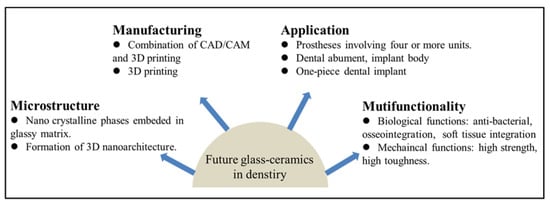Esthetically these materials are preferred alternatives to the traditional materials in order to meet the patients demands for improved esthetics.
Performance of dental ceramics challenges for improvements.
Challenges for improvements 943 and grit blasted with 50 µm alumina at 0 5 mpa pressure for 5 sec from 10 mm kim et al 2010a.
1 engineering and technology new york university 70 washington square south room 1238 new york ny 10012 usa.
Over the last decade it has been observed that there is an increasing interest in the ceramic materials in dentistry.
Methods the authors analysed evaluation reports relating to five health foundation.
The authors aimed to integrate lessons from evaluations of the health foundation s improvement programmes with relevant literature.
Challenges for improvements.
Challenges for improvements abstract the clinical success of modern dental ceramics depends on an array of factors ranging from initial physical properties of the material itself to the fabrication and clinical procedures that inevitably damage these brittle materials and the oral environment.
Performance of dental ceramics.
Rekow ed 1 silva nr coelho pg zhang y guess p thompson vp.
Performance of dental ceramics.
Two physical properties in particular are used to assess the clinical performance of today s dental ceramics.
Title performance of dental ceramics.
Platt in mcdonald and avery s dentistry for the child and adolescent tenth edition 2016.
Background formal evaluations of programmes are an important source of learning about the challenges faced in improving quality in healthcare and how they can be addressed.
Increased demands for aesthetic restorations and the encouraging performance of all ceramic restorations in the permanent dentition have led to significant advances in dental ceramics glass ceramics used in all ceramic restorations now provide highly aesthetic results but their.
The objective of this review is to first summarize clinical experimental and analytic results reported in the recent literature.
Dental ceramics are usually composed of nonmetallic inorganic structures primarily containing compounds of oxygen with one or.
The work aims to engage the bioceramics and engineering communities to meet the challenges of modern dental restoration using advanced ceramics.
Understanding the influence of these factors on clinical performance has engaged the dental ceramics and engineering communities alike.
Innovations in ceramics and ceramic processes are vital to ensure reliable and affordable dental restoration solutions with aesthetically pleasing outcomes.








